Government again mobilises FDS to supervise final exams amid teachers’ overtime dispute – Carta ...
Mozambique: Blistered feet from the long walk to Montepuez – Lusa report
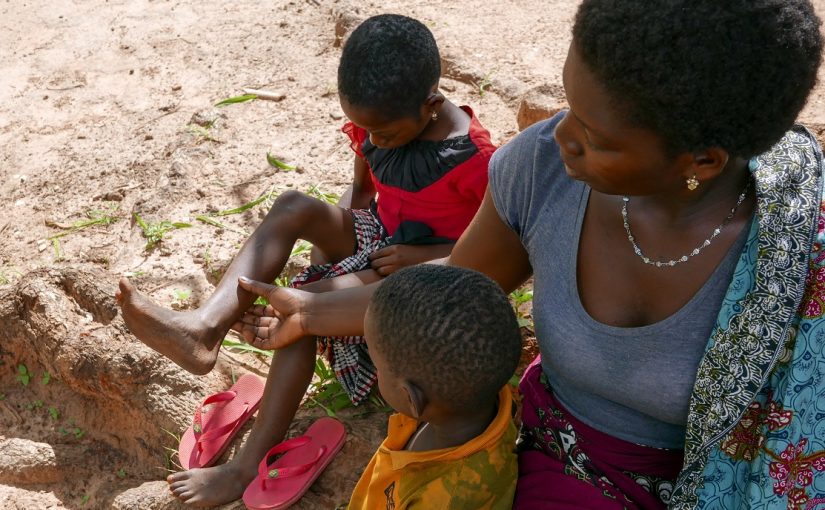
Photo: Lusa
Denise João, 27, walked 100 kilometres with her two children over four days before getting transport away from Palma, the town attacked on March 24 by armed groups in northern Mozambique.
“We got wounds on our feet, the children couldn’t even walk,” she tells Lusa in her new home in the Montepuez neighbourhood of Mapupulo, in the opposite corner of Cabo Delgado to the one where she lived just over a week ago.
Nangade, Mueda and Montepuez form the main escape route from Palma, on foot through the forest, according to the United Nations.
After walking 100 kilometres to Nangade, Denise says, she was able to contact her family and receive the necessary fundes via mobile to pay for a ride to Mueda and then to Montepuez, where she arrived after ten days.
She lives in her aunt’s house, herself displaced after being forced to flee Muidumbe some months ago.
Why go as far away as Montepuez? Because it is far enough to feel safe, explains Joaquim Severino, 44, displaced from Mocímboa da Praia since 2020.
Also read: Gemfields monitoring Montepuez as 60,000 fleeing Mozambicans arrive in ruby mine vicinity
The violence changed the way he saw the province, and he now says that even Mueda is no longer an option. “It’s too close to Mocímboa,” he says, despite the 100 kilometres that separate as the crow files – much further by road – and despite the fact that Mueda has never been attacked.
Walking such distances is painful, with stops in remote villages, eating what the residents offer, while your feet heal and allow you to attempt the next stretch, says Moises Wanane.
“We spent two weeks resting” in these villages after fleeing from Muidumbe in 2020, because “the children were unable to walk and I was unable to carry them,” he tells Lusa.
Denise João shows us the feet of Júlia, her eight-year-old daughter, now recovered but still scarred. She ran away from Palma holding her by the hand and little Sozinho José, three years old, in her lap.
“One on my lap, her by the hand, running,” in a flight in which she was separated from her husband, of whom she has not heard nothing since.
Denise always has her cell phone in her hand, and tries to contact him several times a day, sending messages, but still today there is no signal. Mobile communications in the Palma area have been out since the attack.
Joaquim Eduardo, deputy head of the Mapupulo neighbourhood, fears for the health of the displaced people he receives, especially the children, having attended the funeral of one of them on Saturday.
“They die of malaria, because we don’t have mosquito nets.” Or they die of what he calls “thoughts of going home”, homesick for everything they left behind.
More medicine is needed at the hospital because of the wave of displaced people, who in Mapupulo alone amount to more than 8,000 families, he says.
But, in spite of everything, safety is still the most prized asset. “No-one has yet returned” to where they lived, “because of the fear of war”.
Mapupulo is traditionally a resettlement site, and has been since the colonial era, says Joaquim Eduardo, when the first confrontations of the Mozambican war of independence, in the area now affected by the attacks, prevented residents who worked in other regions, such as Nampula, from returning home.
Today, the most immediate necessity is vegetable gardens for the displaced, both as a source of income and of food.
There are only jobs for some in Montepuez, with companies dedicated to the extraction of ores, such as graphite and rubies; jobs which, in the perception of the deputy chief, should have a greater impact on the area’s living standards.
The sun goes down without any accompanying fear of what the night may bring, despite the scarcity of food, social aid and a future which remains uncertain.
Joaquim Eduardo goes off to rest. He already knows that, tomorrow, there will be more displaced to look after, more wounds to heal.


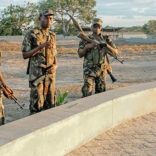

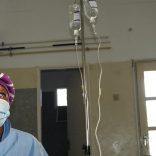

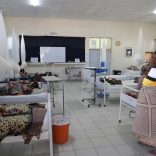
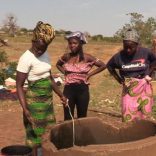




Leave a Reply
Be the First to Comment!
You must be logged in to post a comment.
You must be logged in to post a comment.